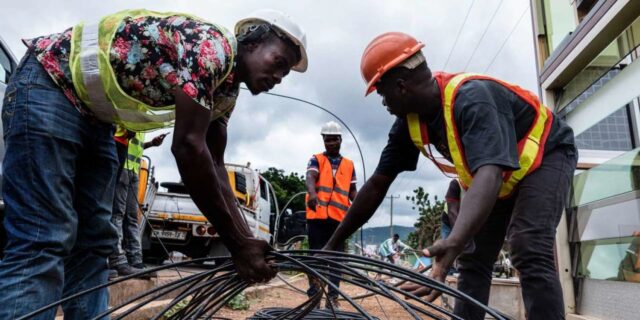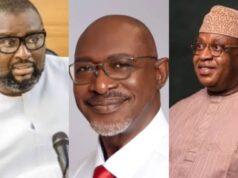
Gift Joseph Okpakorese
The Federal Government through the office of the Minister of Communications and Digital Economy, Dr. Isa Pantami, has appealed to state governments to collaborate with service providers in guaranteeing the realization of the Federal Government’s 70 percent broadband penetration by 2025.
The disclosure was made last week by Dr. Pantami while addressing a virtual forum put together by the Association of Telecommunication Companies of Nigeria (ATCON), with an emphasis on the implementation of the New National Broadband Plan (NNBP) 2020-2025.
The Minister remarked that the Federal Government was committed to creating an enabling environment for the growth and development of the economy. He stated that President Muhammadu Buhari had resolved that a wholesale enactment of the plan would be embarked on. He reminded the states that their support was crucial.
He said the broadband deployment was beyond a mere assemblage of taxes, underscoring that states should recognize the contributions of network providers as partners in evolution.
Recollect that some of the telecoms operators are having difficulties in rolling out infrastructure in some states because of prohibitive Right of Way (RoW) levies. Against the N145/linear meter brokered by the ministry and the Nigeria Governors’ Forum (NGF), some states still charge as much as between N5,000 and N10,000 per linear meter, and this has constituted quite an impediment in the functions of service providers within the federation, in rolling out their facilities.
Pantami however disclosed that some states had accepted the official benchmark, even as others offered free RoW, adding: “But we are not there yet. I have had the opportunity of making a presentation to the NGF, where there were about 30 state governors and representatives on the importance of creating an enabling environment for infrastructure development.”
He continued: “Infrastructure development is critical, especially as the country moves to achieve 70 percent broadband penetration. To achieve this, a partnership between the private sector and government is crucial. So far, the private sector controls 91 percent of the Gross Domestic Product (GDP), while FG controls just nine percent. So, we must work together to ensure the country’s development.”
Meanwhile, the Executive Vice Chairman/Chief Executive Officer of the Nigerian Communications Commission (NCC), Prof. Umar Danbatta, represented by the Director of Spectrum Administration, Austine Nwaulune, emphasised that stakeholders must aggregate their creativity for the actualisation of the project.
He remarked that the NNBP had showcased the accomplishment bar for the whole industry, noting that: “Being a document crafted by experts and executives, there is no reason why it cannot be achieved to put Nigeria on a firm pedestal of nations with broadband access.”
To the Director-General, National Information and Technology Development Agency (NITDA), Kashifu Abdullahi, broadband plays a huge role in the nation’s development. He noted, : “All stakeholders must be ready to work together to drive the realization of the target.”
Nonetheless, the ATCON President, Ikechukwu Nnamani, had earlier stated that the development of a substantial digital economy relies on the establishment of well-distributed broadband infrastructure, pertaining to the confluence of all technologies and services.
The Chief Executive Officer and Managing Director, Airtel Nigeria, Segun Ogunsanya, contributed saying that with implementation in mind, the task should be providing broadband that is cheap, reliable, and endurable.
Also on his part, the Chairman, MTN Nigeria, Dr. Ernest Ndukwe, said the project must be judiciously enforced, noting that the hindrances must be adequately sorted out by all parties involved.







